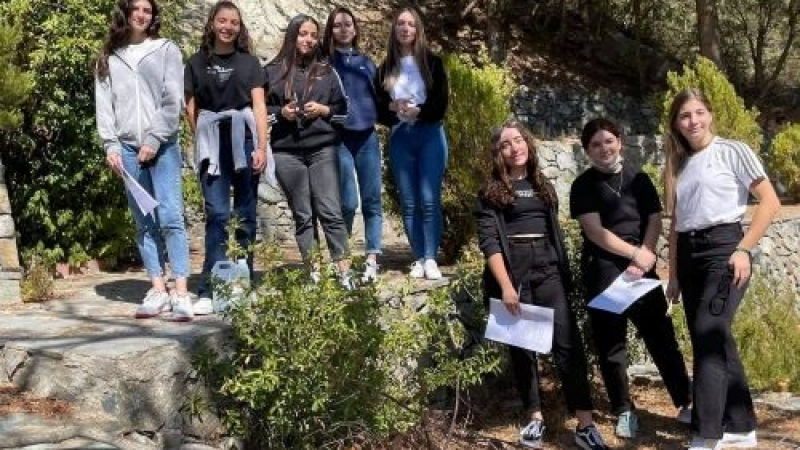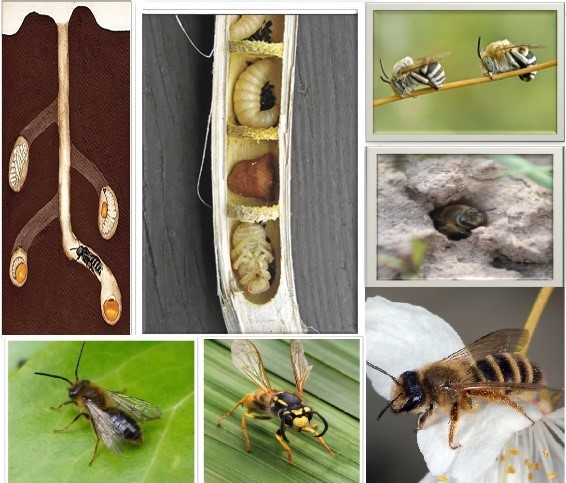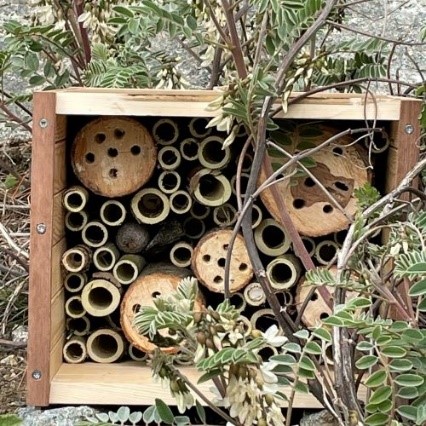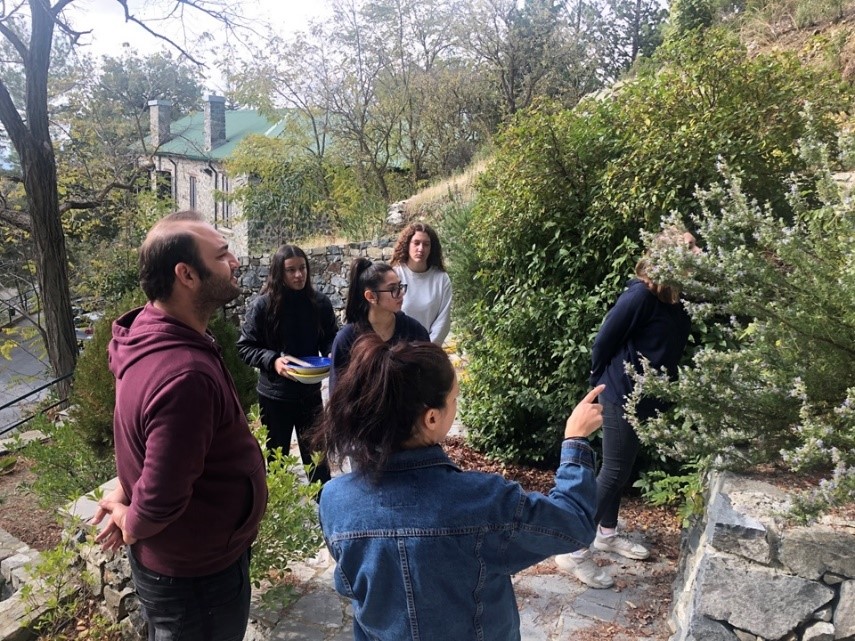This living lab project is hosted in a school built at 1200 meters altitude and welcomes students from about 15 different mountain communities. The school is surrounded by natural vegetation and is frequently visited by mouflons and bees.
Therefore, students and teachers decided to address the need to protect important pollinators in the area, which had not yet been studied. Students, in cooperation with a university researcher and their biology teacher, decided to contribute to the protection and preservation of solitary bees in the villages near their school.
The school has already been researching solitary bees in the community area to increase biodiversity, since 2019 as part of the SEMEP (South Eastern Mediterranean Environmental Project). In addition to their initial work on the topic, the school started thinking about how they could share with its community the knowledge they have gathered over the years of research on solitary bees in the forest ecosystem of Lemythou, and how the community could also contribute to their work.
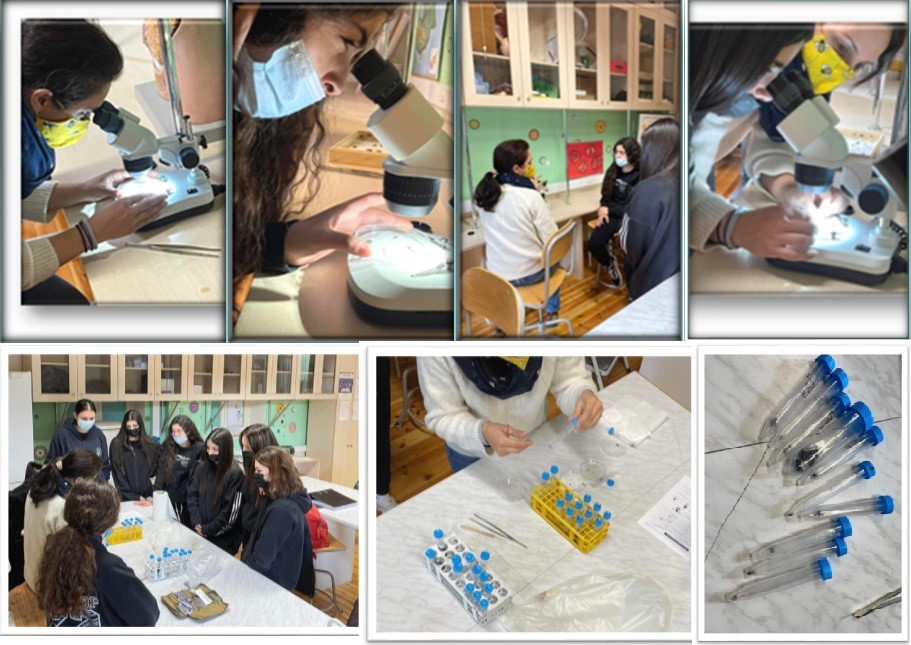
Firstly, students with their biology teacher investigated some of the factors that reduce bee biodiversity in their area which are the increased use of chemicals and the intensive use of land in agriculture, the non-controlled grazing, human activities, etc.
The university researcher presented them with different fascinating information about solitary bees. Then, in collaboration with the university researcher, they collected samples of solitary bees in order to get to know them, learn to recognize and classify them and find the best conditions for their reproduction.
Subsequently, they investigated different ways to protect the solitary bees. Under the guidance of the design and technology teacher of their school, they built a bee hotel. The bee hotel was intended to function as a measure to protect the bees of their area and an easier way to study what species exist in their area.
Finally, students and teachers shared their results and knowledge with the school community, as well as the authorities and residents of the mountain communities in which they live. Their purpose was to make the world aware of the protection of solitary bees after explaining their value and ways of protecting them. A discussion was held with the residents for the implementation of protective measures.
The school has further plans and is aiming at morphologically identifying the specimens they found through DNA Barcoding, expanding the bee hotel, creating a garden with local plants that will attract the solitary bees and continuing the data collection during spring and summer.
Here is what students, teachers, and external partners have to say about their living lab experience:
Teacher: “For 4 years I have been moved by the zeal of the students. So much excitement! The previous students of the program impart their knowledge and experience to the new students and make them enthusiastic. They are internally motivated, they want to pursue it, to work at it.”
Students: The students were intrigued by the fact that they could discover something new. They were very excited about the bee classification because they had the opportunity to use specialized tools. They originally intended to create an entomology to exhibit the bee specimens they collected. However, they finally decided in collaboration with their researcher to keep the samples in the freezer in order to try to discover the species of bees by decoding their DNA in collaboration with universities abroad. The students are excited about the turn their project has taken as they may discover a previously unrecognized species.
External partner: The researcher was very positive about their collaboration. She wanted to meet the students. She praised how well they worked together and their exquisite results.
Contact
Yvoni Pavlou
National coordinator – University of Cyprus
Mail

